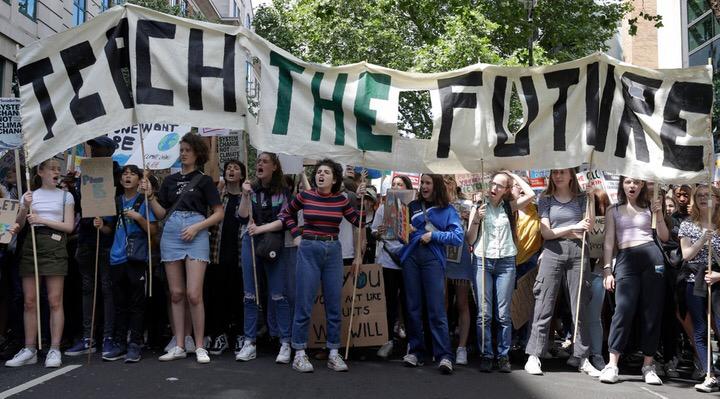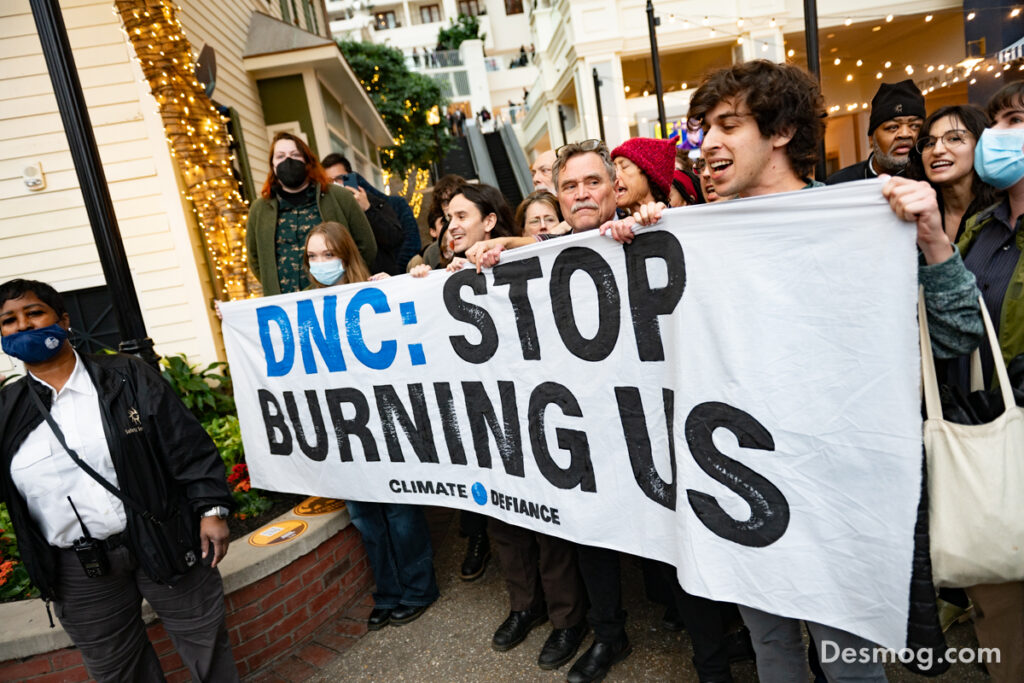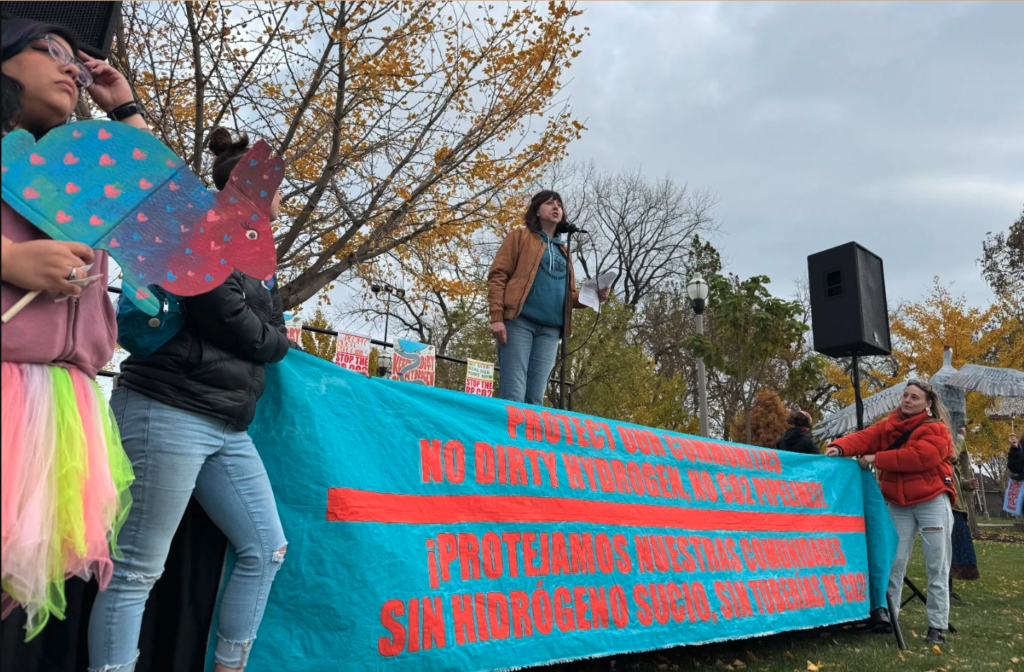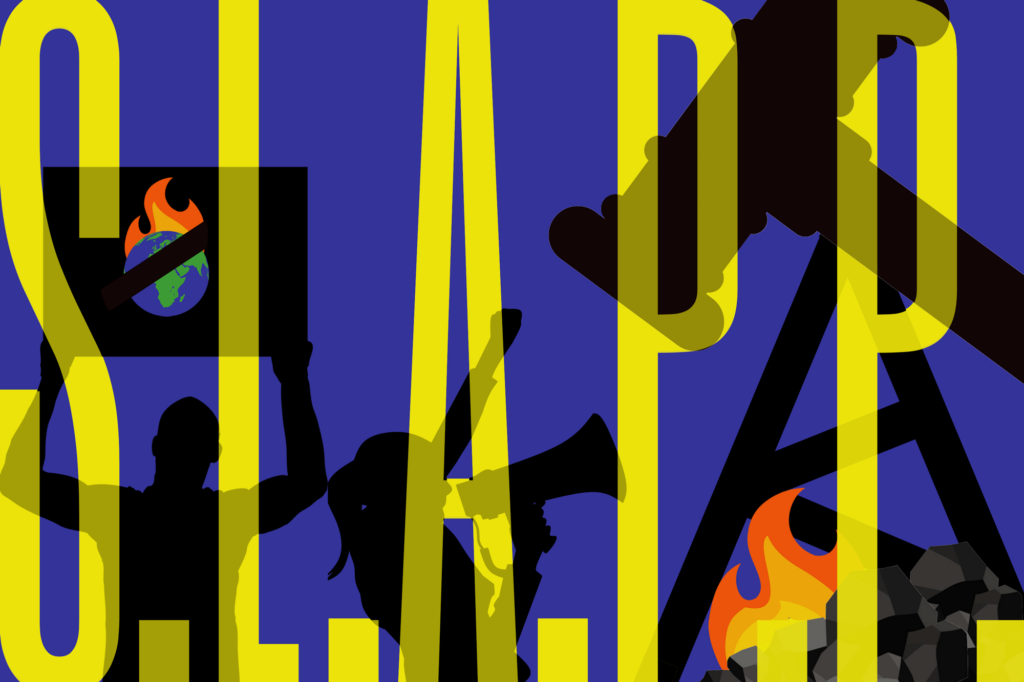Students are today taking their education into their own hands and launching a climate emergency education bill in parliament, to call for rapid education reform and with the hopes of gaining support from MPs.
Their calls contrast starkly with similar bills introduced by Conservative MP Christopher Chope, who was one of only five MPs to vote against the UK’s Climate Change Act.
The students’ bill is being launched by Teach The Future, which has been set up as a collaboration between the UK School Climate Network that organised the Fridays For Future school strikes, and SOS UK, which is an offshoot of the National Union of Students.
Teach The Future has a six-point list of actions they want to see implemented, including an English Climate Emergency Education Act and the inclusion of the climate emergency and ecological crisis in teacher training and a new professional teaching qualification.
Like what you’re reading? Support DeSmog by becoming a patron today!
15 year-old student Mary Skuodas, currently studying for her GCSEs in Hampshire, is part of a core group of about 20 students responsible for presenting the climate emergency education bill to a parliamentary reception of MPs.
The bill has been written by students, with the final draft written by a professional parliamentary draftsperson. Skuodas told DeSmog that, “to our knowledge, it is the first bill written by students about their own education.”
To get the campaign going, Skuodas emailed hundreds of MPs. Speaking a few days before the event, she told DeSmog that the campaign had received a lot of cross-party support and 60 MPs had responded saying that they would attend the launch this evening, as well as up to 50 students.
“We wanted to hold this parliamentary reception and we very quickly realised it’s going to cost quite a lot of money. We launched a crowdfunder and we’ve had 565 supporters and managed to raise £11,746 over something like a month which was amazing. I never thought we would raise that amount of money so quickly. We raised the first £4,000 in 48 hours.”
“We’re hoping it’ll be a really nice evening, where we can start talking to MPs and start having those conversations about how we take this forward, and try to gain government support so they put it through as their own bill.”
Anxiety or preparation?
In contrast to the students campaigning to reform their own education, Conservative MP Christopher Chope tabled two private members’ bills in parliament on February 10 that he says “look to address eco-anxiety and define it.”
The MP for Christchurch is one of only two MPs left in parliament that voted against the UK‘s landmark Climate Change Act. In 2010 Chope joined a number of climate science deniers including Piers Corbyn and James Delingpole in parliament at an event called ‘Climate Fool’s Day’ to commiserate the passing of the UK’s Climate Change Act two years before.
Chope’s bills are called The Anxiety in Schools (Environmental Concerns) Bill and Anxiety (Environmental Concerns) Bill. He told PA news agency: “This is a new subject for Parliament and I thought these private members’ bills are an opportunity to ventilate it and get a response because this eco-anxiety is affecting some people in a very serious way. For example, it is causing some people to say they do not want to have children.”
“This is quite a drastic response to an issue that they as individuals have no control over. It is becoming like a phobia, ” he said.
But rather than toning down climate education in the classroom, Skuodas argues there needs to be a much clearer focus on the crisis facing her generation.
Read more coverage of the School Strikes for Climate
She believes the current education system isn’t fit for purpose, saying,“it isn’t preparing us with the skills we need to enter a world that is completely different because of the climate crisis.”
Skuodas emphasises that it’s not enough to teach children about climate change in just geography or science classes, but “about implementing the climate crisis into education and into the curriculum. That is obviously really important, but it’s also about the way schools are run and the sustainable principles that need to run through all of our topics,” she said.
“Hopefully, if we did that, then no matter what GCSE or A Level options you choose you’d have a good understanding of the climate crisis, of sustainable principles and of the action that needs to be taken to address the climate crisis.”
“So we need a government-commissioned review into how our education system is or isn’t preparing us for that, and take pragmatic action to address those things alongside freeing up funds for student-led environmental action, so that finance isn’t a barrier to students wanting to take climate action.”
Despite being fully aware of how long that process could take, Skuodas tells DeSmog that she is optimistic about the launch. She said: “The ideal scenario would be that the government would adopt our Climate Education Act, and it would get passed through pretty rapidly.”
“We need rapid reform. Every student that is currently going through education is going through an education system that is unfit for purpose. If it went through as rapidly as possible that would be brilliant so that new students coming through would be going through an education system that prepared them.”
Main image © Teach The Future
Subscribe to our newsletter
Stay up to date with DeSmog news and alerts







